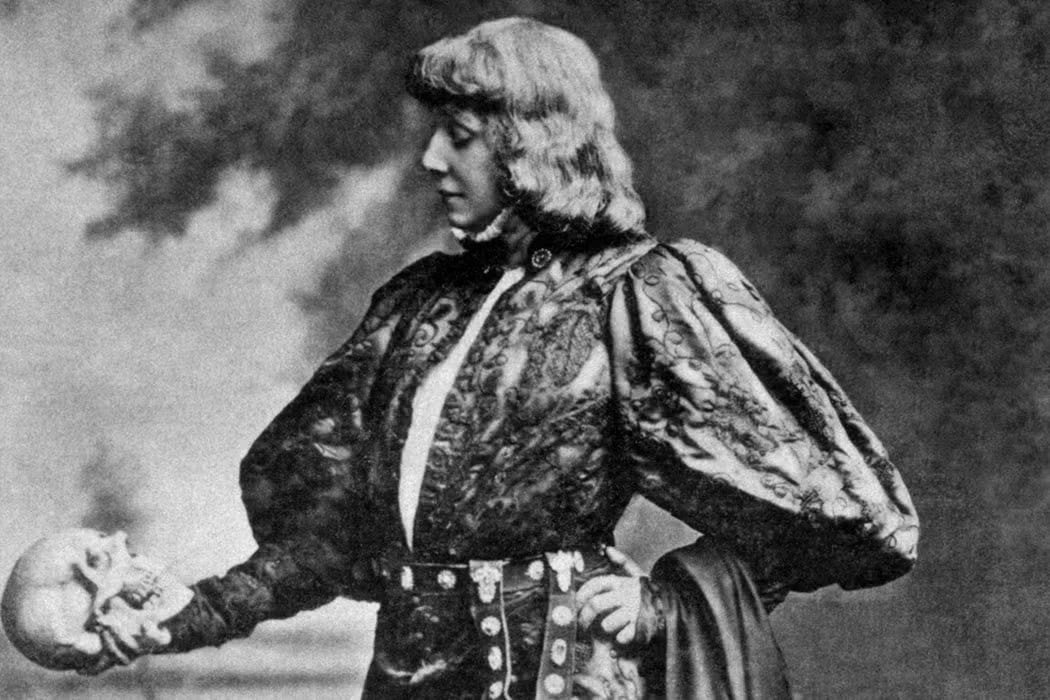I used to be a “theater kid” in high school and college, but that was a long time ago. Excepting a recent abortive phase as a local open-mic night standup comedian (which ended with my unceremonious cancellation back in March), I haven’t appeared on a stage in a good three decades.
Yet for some reason, I continue to have a recurring anxiety dream related to stage acting, one that is both eminently familiar and wondrously strange.
I should also mention that I do not, as a rule, have recurring dreams. Until these nightmares began to afflict me, in fact, no two dreams of mine were ever alike.
*************************
Interestingly, it was after my theater kid days were well over that I became intensely enamored with Shakespeare’s greatest character: namely, Hamlet, prince of Denmark.
Hamlet’s is the sort of personality that, per Walt Whitman, truly “contains multitudes.” He is all kinds of seemingly contradictory things at once. He is noble, magnanimous, and high-minded one moment, petty, vengeful, and mean-spirited the next. In one crucial scene, having worked himself into an apoplectic lather at his mother’s faithlessness, Hamlet fatally stabs the annoying but generally innocent Polonius, who was hidden behind an arras, in an infamously “rash and bloody deed,” yet afterwards dismisses the gravity of his act with little more than a callous wave of the hand: “Thou wretched, rash, intruding fool, farewell/ I took thee for thy better.” Yet just before this shockingly violent outburst, Hamlet had come across Polonius’s “better,” King Claudius, the very “incestuous, murderous, damned Dane” who killed Hamlet’s father and married his mother mere weeks afterwards to assume the throne… and chose to refrain from killing him.
Refusing to put a known enemy to the death one moment, eager to brutally stab a hidden figure behind a curtain the next… Attempting to align his soul with the dictates of Heaven on one occasion, then announcing himself willing to “drink hot blood” and “do such bitter business/ As the day would quake to look on” shortly thereafter… Hamlet is consistently inconsistent in his words and deeds, even to the point where it is unclear whether the “antic disposition” he is adopting— i.e., his seeming madness— is feigned, or real. There are time when he is obviously employing the “crazy” act strategically, to throw his enemies off the scent, and there are other times when he truly seems to have lost his mind.
Yet Hamlet’s inconstancy of character only makes him more human, while his flaws— which he has in abundance— serve to make him more engaging, even endearing. More than any other Shakespeare character, and probably more than any character in any play ever written, Hamlet in “Hamlet” totally dominates both the dialogue and the plot; he is seldom offstage, his voice rarely unheard. Even in the few-and-far-between moments when he is absent from the stage, his presence his still indomitably felt.
Hamlet is the sort of fictional character that you wish were real; at times, he seems more vital than most people who (technically at least) possess actual vitality. When faced with life’s struggles, I have often wondered to myself “What would Hamlet do, if he were me?” At all times I have concluded that his behavior might not be wise, or prudent, or even good, but it would definitely be interesting.
**********************
At some point, I began to fantasize about getting to play Hamlet in an actual stage production. Unfortunately, this never came to pass. Still, due to my fascination with the play, I have already memorized a great many of the melancholy Dane’s lines. And at some point, I began having my recurring Hamlet anxiety dream.
In these dreams, I have been cast as Hamlet, and it’s just hours before the curtain rises for opening night. Yet for some reason, I have been absent for all of the rehearsal time, so I know neither my dialogue, except in a scattered sense, nor the stage directions I am expected to follow. Despite these impediments, I am still expected to perform flawlessly. (This circumstance of course makes no sense in waking life, but c’est la dream…)
What do I do? I am trying not to panic. Do I bring a copy of the script and read from it, lame as that would be? Do I attempt to “wing it,” step out in a leap of faith, just hoping that God just gives me my lines and guides my blocking? Do I tell the director that he needs to cancel the show, because if he doesn’t, I will suffer the indignity and humiliation of being the “star” who blew his opportunity for glory, live, in front of hundreds of people?
There is something “meta” about this dilemma I face in this dream. It is saturated with existential dread and a sense of cosmic dis-rectitude, much like Hamlet himself: “The time is out of joint; O curs'd spite, /That ever I was born to set it right!”
Andy Nowicki is the author of several books, most recently The Insurrectionist, and Muze, as well as the just-published The Rule of Wrath. Visit his YouTube channel.





Macbeth is far the better play